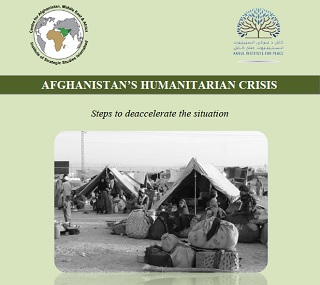Introduction
Since the Taliban took over Afghanistan on August 15, the country – already struggling with drought and severe poverty from decades of war – has seen its economy all but collapse. As per the UNHCR Report published in September, 2021 the number of Afghans who fled from their homes to other parts of the country or abroad have reached 3.5 million, out of that around 340,00 have fled the country in two months. These facts highlight that millions of dollars have also been taken with these Afghans abroad; businesses are closed or affected, trade has reduced, daily market activities reduced and as a whole, the economy is on the verge of a breakdown.
On the other hand, most of the foreign aid that was supporting the Afghan economy has been cut off or suspended. Major donor organizations such as the World Bank, ADB, IMF and many others have called off their operations in Afghanistan and have given up on supporting any activity in Afghanistan. Although humanitarian aid is an exception, it also needs proper planning, coordination and logistics. The lack of commercial flights, means the supplies needed to be taken in on special flights or by road. Additionally, the Taliban Government is not able to govern and handle the crisis well. Mismanagement of resources, lack of relevant experience, absence of NGOs and other organizations to assist have weakened the Government to cope with the crisis.
The brain drain taking place from the past two months has created a vacuum of technical expertise to run the Government agencies and provide basic services to the people. Furthermore, the private sector has also abridged its activities due to the lack of demand and also dearth of political and physical assurance from the Taliban Government. Moreover, the banking sector has witnessed a major setback and they have to limit weekly transactions by the account holders to avoid the draining of wealth from the banks. These limitations have also affected the private business, local markets and the common people of Afghanistan. As per the Afghan Chamber of Commerce and Industries, the real estate market has faced a severe fall and same is the case with other major assets such as cars and property.















